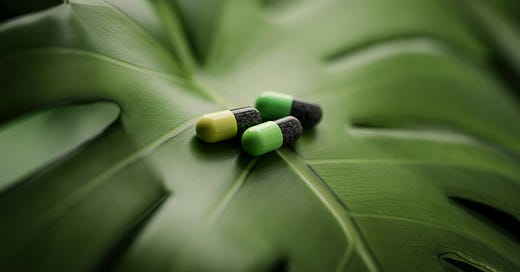When it comes to supplements, you have to watch out.
As I recently wrote, a good supplement can save lives. A bad one can waste your money and give you a false sense of security.
Who can you trust?
As you probably know, many governments don’t test or evaluate the vast majority of products out there claiming to support immune health or fight viruses. So while we have plenty of studies showing that plant-based antivirals and antibiotics work, it can feel nearly impossible to find a brand that contains what it should, in concentrations high enough to make a difference. We end up relying on reviews, discussion threads, and anecdotal evidence from friends.
If we lived in a world where governments did their jobs, we could run (or crawl) down to the store for some St. John’s Wort when we got sick and trust that anything on the shelf did what it said. Unfortunately, we can’t.
For example, Consumer Lab (a great resource) has routinely found that 90 percent of ginkgo-based supplements fail basic chemical tests. They either don’t contain ginkgo, or not enough to actually do anything. This level of fraud runs across the industry and gives alternative medicine a bad reputation.
If you bought a supplement and it didn’t work, there’s a good chance the key ingredient wasn’t even there.
Many of us are still planning to take all the precautions we can, but it’s important to know what else can help. After I pulled together a list of plant-based medicines, my next job was finding reliable products.
Here’s what I’ve learned:





